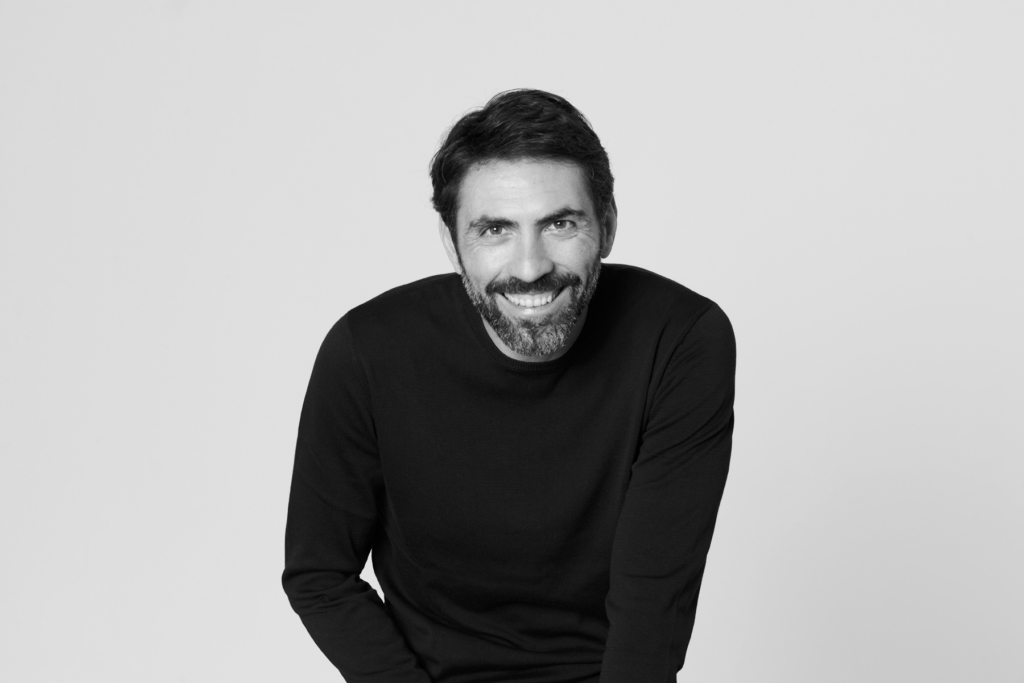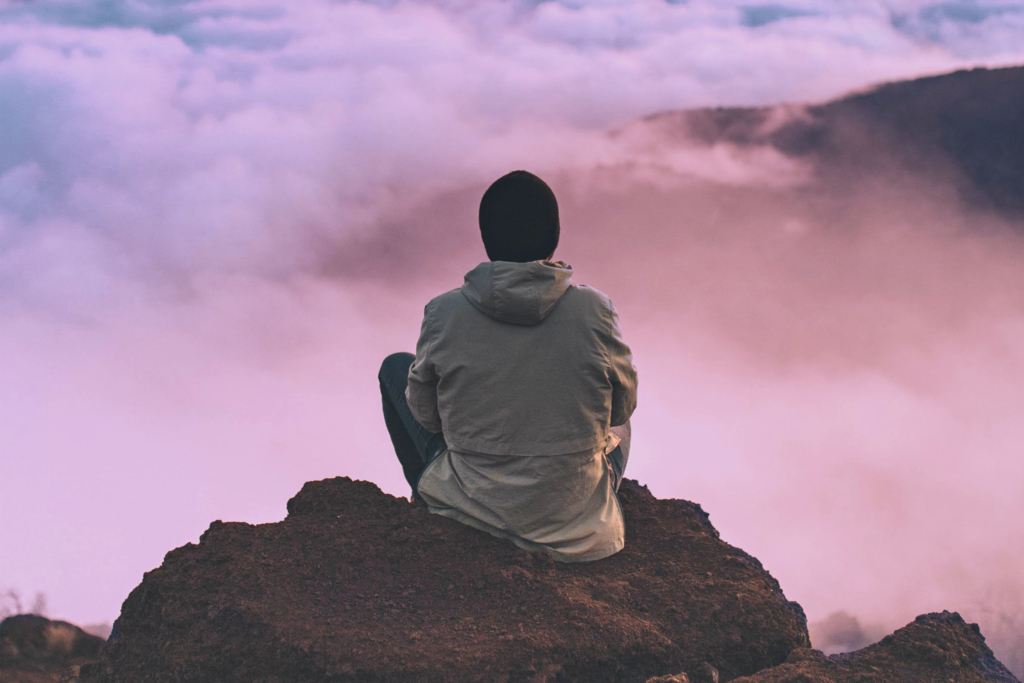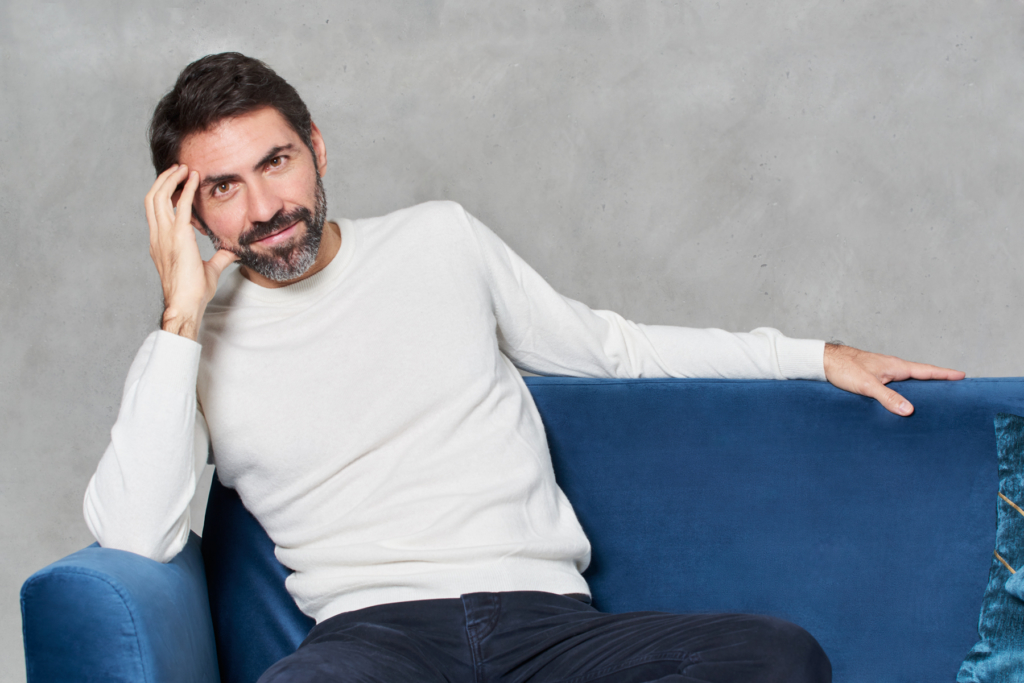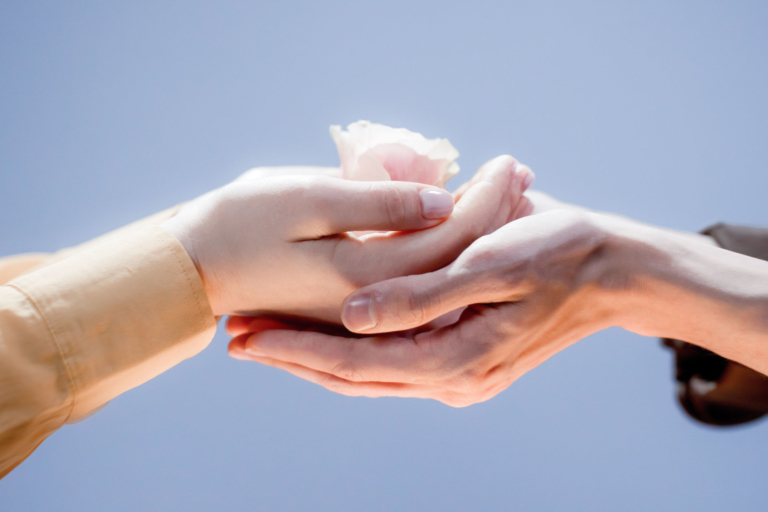I attended the University of Natural Sciences, and entered the University of Siena as a sociobiologist and researcher in communication of cultural processes. I then left the course to follow my calling – bringing a new, innovative approach to the science of wellbeing, and the connection between ancient cultures and modern neuroscience. I still teach in the masters’ course and training courses at the university as part of the external faculty.
My life trajectory started very early because, parallel to the university path, I also had the opportunity to study with one of Gandhi’s disciples, Anthony Elenjimittam, who introduced me to the Indovedic culture, the art of meditation, discipline, perseverance, and patience. All these have been decisive in my work and my life choices
I met happiness when I began to follow my true path, which flourished early at the age of 19 and at the very beginning of my university career. I promised my family that I would go on in my studies but at the same time that I would cultivate my vocation, which is much more than a passion. It is my calling and purpose, which transformed into my lifestyle and also my business. My task has always been to create a bridge between neuroscience and ancient knowledge and apply the results of this research to improve quality of life in our contemporary world, raising awareness as much as possible so that we are no longer an exploiter of the planet’s resources but a guarantor and safeguard of its beauty.

Talking about quality of life is not only possible today, but it is very necessary. Quality of life and well-being are multidimensional, affecting the physical dimension, but also the vital force, the relational and emotional aspect, and therefore our emotional intelligence. By regulating our emotional and mental life, we have the capacity to make the mind functional and harmonious and to eliminate our toxic thoughts – those disharmonies that lead to suffering and disease. Furthermore, wellbeing also affects the narrative of our past and our existential dimension – our purpose, the deepest and most authentic meaning of our life, and our vocation.
Science today shows us that if we choose to be thoughtful of others, show kindness, gratitude, empathy, forgiveness and compassion, we not only fulfill ethical-moral imperatives, but we actually support our biological makeup to live better and longer. Kindness is also an excellent resource for achieving greater results in the workplace, enhancing teamwork and productivity.
On the other hand, scientific research has always shown that discrimination and hostility of all kinds, from racism to homophobia, causes serious chronic diseases and increased crime rates. Kindness and wellbeing is a two-way street, also involving the “ecological mind”: just as our mind can influence external environments for good or for bad, so our psychophysical and emotional environment is influenced by the environment that surrounds us, in the very close interdependence and interconnection between all forms of life.

Absolutely yes. Kindness is not only good for the health of those who practice it and those who receive it. Even if you simply witness an act of kindness by someone else, a whole series of biological mechanisms are activated within us, leading to the production of hormones related to pleasure and happiness, with a corresponding lowering of hormones related to stress.
Furthermore, there are two ways to practice kindness: internally, meaning meditating on kindness, and externally, by performing acts of kindness. In both cases, there is an important impact on our telomeres, the caps of our chromosomes which constitute the genetic material of our health and longevity. This was shown in studies we’ve conducted with Immaculata De Vivo, Professor of Medicine at Harvard Medical School and Epidemiology at Harvard School of Public Health, one of the world’s leading experts in the field of molecular epidemiology and cancer genetics. Professor De Vivo studied a group of women who practiced loving-kindness meditation for four years, reporting increased length and improved conservation of telomeres compared to the group who did not practice this type of meditation. Also, scientific research has shown that those who harbor an altruistic attitude have a 60% lower mortality rate and a higher life expectancy rate of between 22% to 44%. Kindness has an irrefutable genetic impact and allows us to live longer and healthier: it is a true natural medicine.

The first tip is very simple: practice four acts of kindness every day. The first towards oneself, which means respecting your own rhythms, and understanding your deep and personal needs, not those relating to social or economic reasons. The second is an act of kindness towards another person, and it must be unconditional and heartfelt. The third is towards an animal and the fourth towards nature, for the protection of our planet. Small actions every day, with the awareness of what you are doing, can really make a difference. Another kindness practice that I would like to recommend is loving-kindness meditation, which I recorded some time ago and is available online, as well as featuring on the Audible podcast “Benessere H24”. In a culture dominated by knowing how to “do”, can you explain the importance of knowing how to “be”?
Knowing how to “be”, unlike knowing how to “do” or how to “have”, is what allows us to really understand our inner world and to manage both our emotional and cognitive dimensions. This existential dimension relates to one’s purpose and vocation.
Raising your level of awareness means knowing yourself more deeply. Awareness enables us to get closer to our purpose, the deepest meaning of our existence. For example, having awareness of our pain creates the experience of compassion, just as having awareness of the discomfort or suffering of others creates the impulse of kindness and empathy. Having awareness of life creates a state of wonder, and gratitude for the miracle in which we are immersed. Awareness is a determining factor of one’s happiness, wellbeing, and authenticity.

Science has shown that meditation affects our DNA, modifies genes and slows aging, and even affects the activity of genes linked to inflammation, cell death and free radical control. Just two months of meditation practice is enough to modify about 1,500 genes! Meditation reduces stress, pain, and chronic diseases, including heart disease, obesity, and anxiety disorders. There are hundreds of studies that demonstrate the profound impact of meditation on our ability to regulate emotions. It was recently discovered that practicing meditation literally rewires our brains and improves our emotional intelligence, encouraging more thoughtful and responsible action to build an eco-sustainable society.
The benefits of meditation have been found not only in those who practice regularly, but also among beginners. Interestingly, in 2019, a collaborative study of various US universities reported that loving-kindness meditation in particular provided enhanced telomere protection after six weeks.
Furthermore, neuroscience has reached the conclusion that it is not necessary to dedicate a whole hour to meditation; even just a few minutes a day brings enormous benefits.
The answer is meditation. A few minutes of meditative practice a day, from 12 to 20 minutes, is enough to trigger the processes of regeneration, peace, regulation of emotions and mood, and physiological rest. Sometimes, the simplest tools have the greatest effect, and small actions are needed to bring big results. Investing in the simple yet powerful tool of loving-kindness meditation is the single most important thing you can do for yourself and for our world.

Spread the kindness!
By focusing on kindness, to ourselves, to others and to the world, we can not only make ourselves happy, we can spread happiness to every corner of the earth. Thanks to Daniel’s inspiration, let’s all be a part of this amazing new movement of inner ecology, and start generating more positive, life-giving loving kindness.

Alma K. S.r.l. Viale Giuseppe Mazzini 10, 50132 Firenze. CF e Partita IVA; 06979680482. Ufficio del Registro delle Imprese di Firenze.
Numero d’iscrizione al REA; FI-670791. Capitale sociale euro 10.000,00 – Versato euro 10.000,00. PEC: [email protected]
Alma K. S.r.l.
Viale Giuseppe Mazzini 10, 50132 Firenze
CF e Partita IVA; 06979680482
Ufficio del Registro delle Imprese di Firenze
Numero d’iscrizione al REA; FI-670791
Capitale sociale euro 10.000,00 – Versato euro 10.000,00
PEC: [email protected]